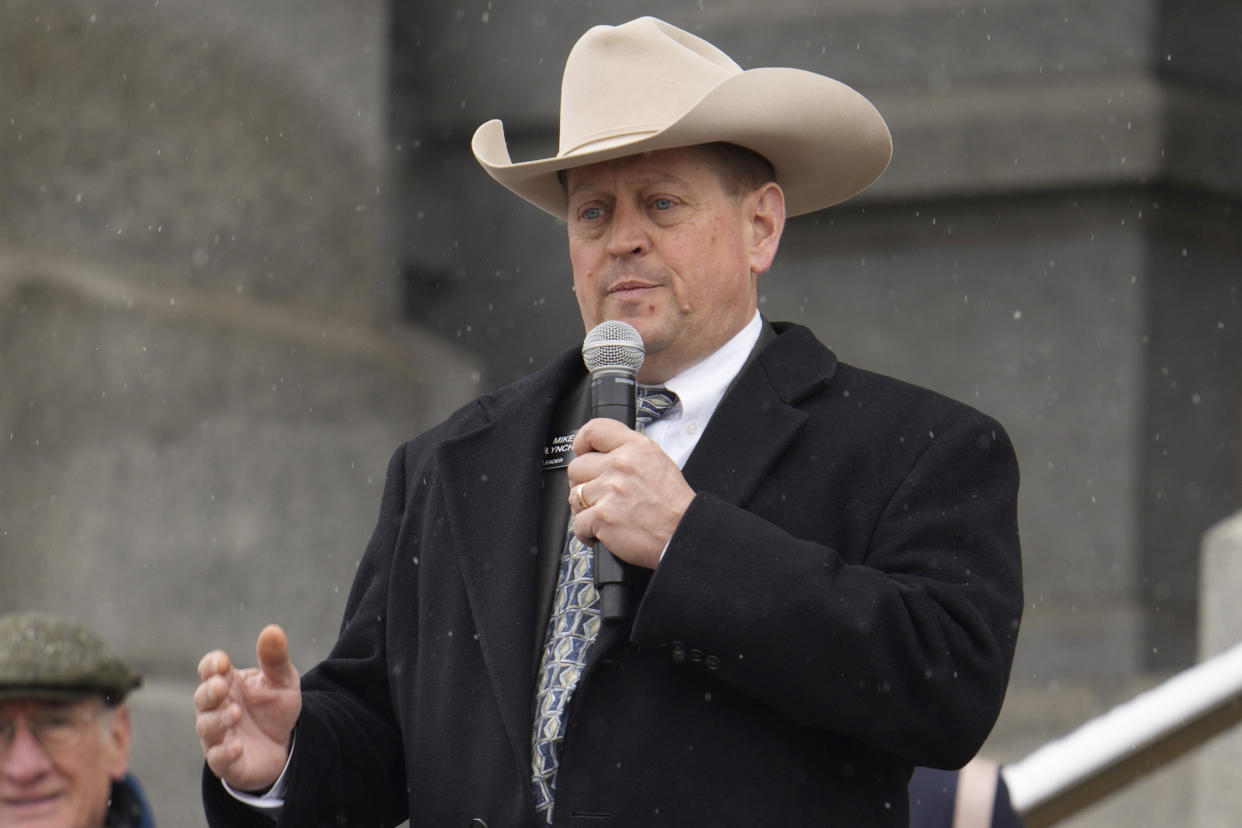Colorado congressional candidate Mike Lynch was arrested for drunken driving in 2022

- Oops!Something went wrong.Please try again later.
DENVER (AP) — Colorado state Rep. Mike Lynch, who is also running for a seat in Congress, was arrested in 2022 on suspicion of drunken driving and possession of a gun while intoxicated — an episode that stayed under wraps until the The Denver Post reported it Wednesday.
Lynch, the Republican minority leader in the Colorado House, is running for the hotly contested U.S. House seat that Republican Rep. Ken Buck is vacating. Far-right Republican Rep. Lauren Boebert is another contestant in the primary after she switched congressional districts last month.
Lynch pleaded guilty to driving while ability impaired and was sentenced to 18 months of probation and monitored sobriety, along with a required handgun safety course and a prohibition on possessing firearms. The sentence for the weapons charge was deferred, and Lynch completed the course and is finishing community service.
“I just made a mistake, and you don't learn from success, you learn from failure,” Lynch said in an interview with The Associated Press on Wednesday. “I'm a non-drinker today and plan on staying that way. I own it, and thank God nobody got hurt."
As far as electoral consequences, said Lynch, “I believe that people understand that nobody's perfect.”
The candidate clocked 90 mph (145 kph) on an interstate north of Fort Collins, Colorado, on Sept. 30, 2022, when Trooper Matthew King pulled him over and smelled alcohol on him, according to a Colorado State Patrol report obtained by The Denver Post.
The report details Lynch telling King he was a supporter of law enforcement and asking the trooper to call Colorado State Patrol's legislative liaison at the state Capitol. Lynch reconsidered when King said he didn't know who that was.
Lynch said he was not trying to bandy his status to get out of repercussions but instead wanted to give those he works with a heads-up.
His blood alcohol content was roughly double the state's 0.08% limit, according to The Denver Post.

